Farmwashing in British Supermarkets
Who’s Really Backing British Farming?
Everywhere you look, supermarkets are shouting about “Back British Farming.” Union Jacks on the packaging, “local” farm branding in the aisles, and glossy adverts promising support for UK farmers. But are these claims genuine, or just clever marketing?
What Is “Farmwashing”?
Much like “greenwashing,” farmwashing is when brands or supermarkets use the language and imagery of British farming to appeal to shoppers, without offering real support to the farmers themselves. It’s become a powerful marketing tool—easy to spot, but hard to challenge.
As Wicked Leeks recently put it:
“We have to ask why it is that supermarkets are making such a fuss about supporting British agriculture in their marketing? They know that buying food from mega-farms all over the world is not actually what British customers want..”
Guy Singh-Watson, Riverford founder
Is Farmwashing & Greenwashing the Same?
Not quite. Greenwashing is a broad term for misleading eco-friendly claims across any industry, while farmwashing is a specific type of greenwashing focused on misleading consumers about the sourcing and agricultural practices of food products. Farmwashing often suggests local or small-scale origins, when the reality is large-scale industrial farming and imported goods.
But both have the same purpose: to disguise reality and polish a corporate image. A clever marketing tool for corporate greed in many industries, including food and farming.
Greenwashing:
Definition: Deceptively promoting products, services, or operations as more environmentally friendly than they really are.
Purpose: To create a positive public image and disguise potentially harmful or negligible environmental impacts.
Scope: Applies across many industries including energy, fashion, food, and more.
Farmwashing:
Definition: A specific type of greenwashing within the food retail sector.
Method: Using branding and imagery that suggests food is from small, local, or family-owned farms even when it comes from large industrial farms or is imported.
Purpose: To hide the reality of industrial agricultural practices, low animal welfare standards, and reliance on imported food by creating an illusion of local, responsible sourcing.
Riverford’s Campaign
Riverford is a company known for its transparency and farmer-first ethos. Best known for its veg box scheme, Riverford sources produce from British farmers and has grown into an online farm shop selling meat, eggs, dairy, fruit, veg & even spices. They also own the ‘food, farming & fairness’ publication Wicked Leeks.
In 2024, Riverford launched a high-profile campaign calling out supermarkets for “farmwashing.” Their message is simple: supermarkets are dressing up imported or industrially-produced food with “British” branding, while failing to pay fair prices or offer secure contracts to real UK farmers.
Headlines, open letters, and a wave of social media support have put this issue front and centre. Campaigns like Farmers Against Farmwashing are gaining traction, demanding supermarkets be honest about where their food comes from and who really benefits.
“They are stealing the clothes of real farmers and not paying for them.
This is farmwashing.”
Guy Singh-Watson, Wicked Leeks
Supermarket Claims: The Reality Check
Take Tesco and Sainsbury’s, for example. Shoppers are greeted with “Rosedene Farm” apples and other “fake farm” brands, complete with Union Jack flags and countryside imagery. But dig a little deeper, and you’ll often find these products are imported or sourced from large-scale suppliers and not the British farms you might imagine.
Watchdogs like Ethical Consumer and Sustain have found that while some supermarkets claim “100% British” on their fresh meat, only about 60% of all their meat (including processed and ready meals) is actually UK-sourced. The British Retail Consortium puts the average at 74% for products marketed as British online, but with little transparency behind the numbers. “Fake farm” branding only muddies the waters further, making it harder for shoppers to know what’s truly local.
The Human Cost: Farmer Voices
This isn’t just a branding issue it’s a real problem for UK farmers. As quoted by the BBC:
“Supermarkets are putting farmers’ livelihoods at risk by making shoppers believe they are buying British when in fact they may not be.”
Farmer Ben Andrews
From my days standing on a market stall at a farmers’ market, I can tell you first-hand that even as a producer selling direct to the public, supermarket standards, pricing, and behaviour affect our business so much. Constantly, we’re questioned why local, small-scale produce is so expensive and the answer is, that’s what it actually costs to produce food ethically and locally. Supermarkets hide behind these fake farms and use industrial scale farming to produce something that can be sold at such a low rate. Rates that don’t even cover the cost of production for farmers locked into supermarket contracts.
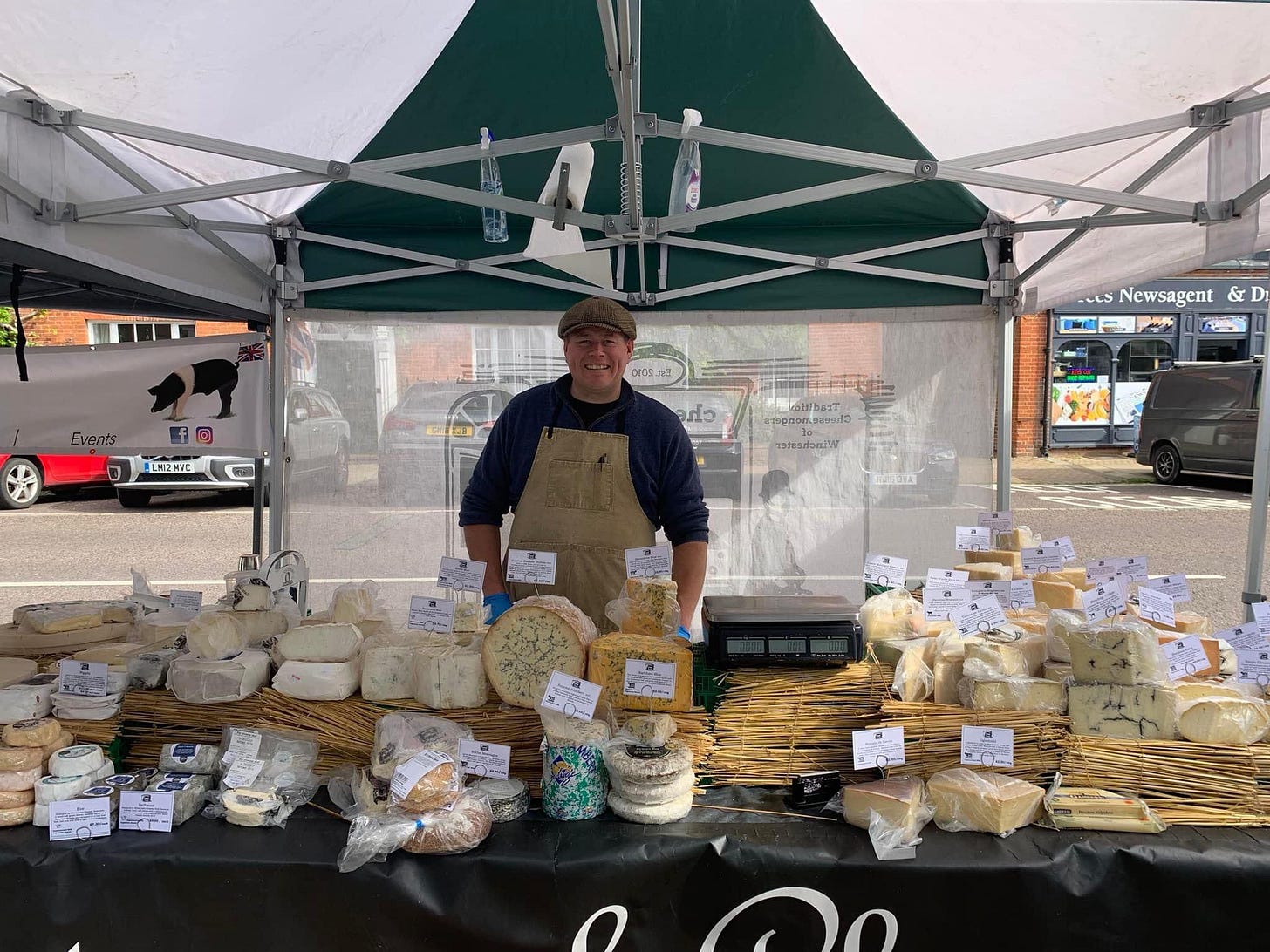
Supermarkets continuing to import fresh produce during the British season is “wrong,” according to both farmers and consumers. The impact isn’t just economic; it’s about trust, transparency, and the future of genuinely local food.
NEW: The Unfair Deal - What Sustain & Riverford Are Demanding
The problem of farmwashing is just one part of a much bigger issue: unfair supermarket dealing. Sustain and Riverford are now calling on the public to write to their MP and demand better supply chain regulation because farmers are still being treated unfairly, from late payments to cancelled orders with no notice.
A few facts from Sustain’s latest campaign:
67% of farmers fear being delisted if they speak out against unfair dealing.
75% of farmers say supermarket behaviour is a top concern in the industry.
1 in 5 farmers (22%) lost a crop due to cancelled supermarket orders.
29% received cancelled orders with no explanation, and nearly a third had supermarkets fail to pay them on time.
The current regulatory system is split between two watchdogs: the Groceries Code Adjudicator (GCA), which oversees the very top of the supply chain (biggest retailers and direct suppliers), and the Agriculture Supply Chain Adjudicator (ASCA), which covers some farm-level issues but only for a few sectors. Most farmers aren’t protected by either, and even if they complain, the penalties rarely reach the supermarkets making the decisions.
Why does this matter?
Because unfair treatment pushes farmers toward debt, damages mental health, and undermines the very “British farming” image supermarkets love to promote. As Sustain points out, financial insecurity drives more intensive, environmentally damaging practices, just so farms can survive.
What’s the solution?
Sustain and Riverford are calling for a single, well-resourced regulator with the power to enforce fairness across the whole supply chain. Parliament is listening (for now) there’s already a proposal (an Early Day Motion) calling for this change, but more public pressure is needed.
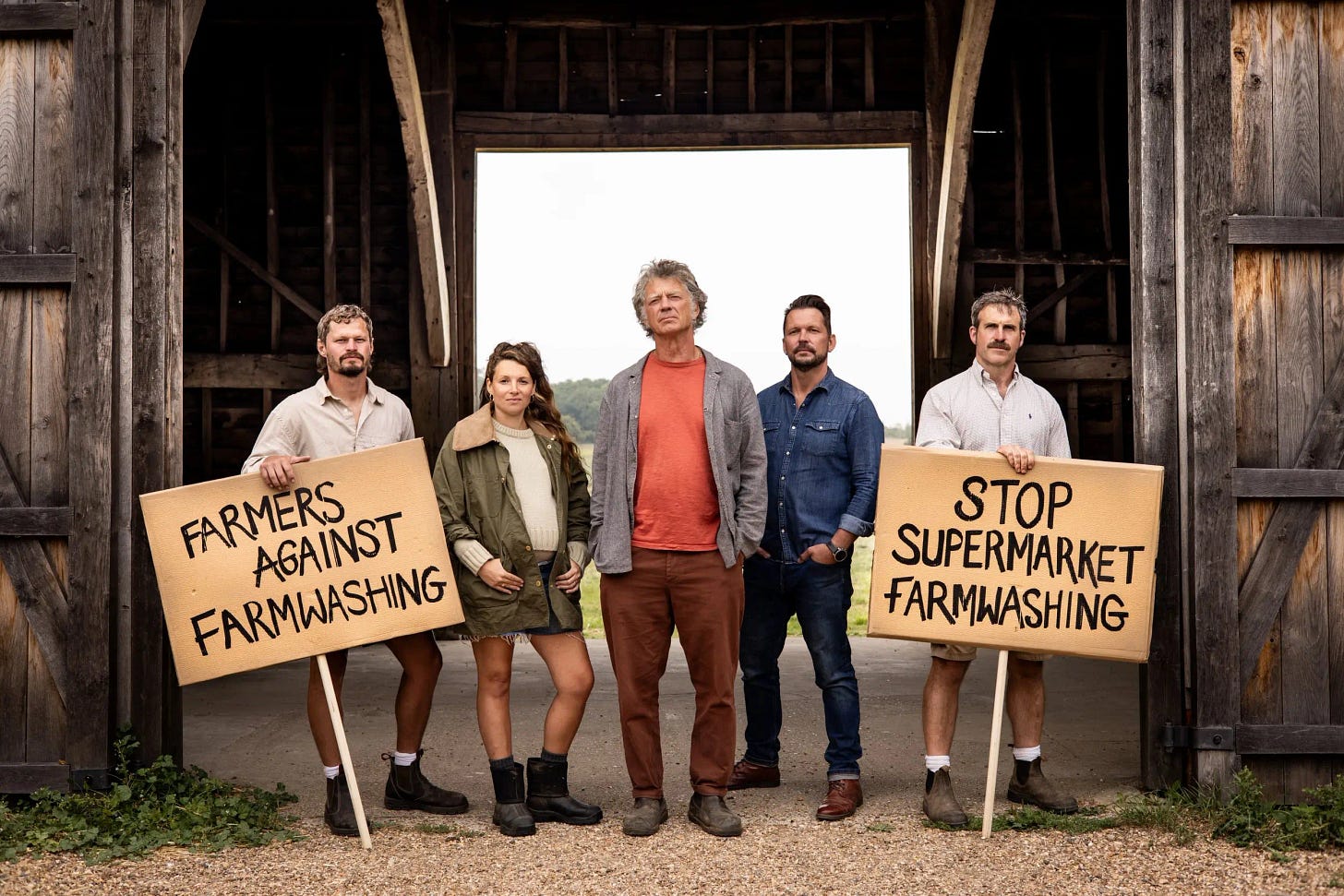
Want to help?
If you care about the future of British farming, now’s the time to act. Write to your MP and ask them to support better regulation to protect farmers. You can read more and take action here: Sustain: Stand Up for a Fair Deal for Farmers
Consumer Confusion: Who Can You Trust?
If you find supermarket labels confusing, you’re not alone!
Only 4% of UK shoppers say they “completely trust” sustainability or origin logos on supermarket products.
69% say brand trust is key, but confusion over claims is widespread.
The average product carries nearly three “green claims,” but few are clearly defined.
It’s no wonder so many of us feel lost in the aisles.
How to Spot the Difference
So, how can you tell if your supermarket is genuinely supporting British farmers or just farmwashing?
Look for transparency: Clear country-of-origin labelling, with details on farms or regions and not just a Union Jack.
Check for independent certification: Soil Association and LEAF Marque are more trustworthy than Red Tractor.
Be wary of vague branding: “Fake farm” names and generic countryside imagery often signal marketing, not meaningful support.
Ask questions: Don’t be afraid to ask your supermarket about their sourcing policies or, better yet, support local producers directly.
As Sustain puts it:
“Look for transparency in sourcing, clear country-of-origin labeling, and independent certification you trust.”
When supermarkets use British farmers as a marketing tool, but don’t pay fairly or offer secure contracts, it undermines the whole supply chain. It affects farm viability, rural economies, and ultimately, our food security. Campaigners like Riverford, Sustain, and the Landworkers’ Alliance are pushing for real change and calling on supermarkets to back up their words with action.
What Do You Think?
Which brands or supermarkets do you trust when it comes to supporting British farming? Have you spotted “farmwashing” in your local shop? Reply and let me know your thoughts.
Special Offer: 20% Off Paid Subscriptions!
To celebrate the start of September and to help grow this independent community - I’m running a special promotion:
Get 20% off a paid subscription for the next week.
Paid subscribers get access to exclusive posts, behind-the-scenes updates, and direct Q&As with me. Your support helps me keep writing honestly about British food, farming, and the issues that matter.
And exciting announcement for paid subscribers coming this Sunday. Stay tuned!
Thanks for reading and supporting honest, independent farming commentary. Your voice is what makes this community real.
If just 5% of my readers tipped £1/$1 this essay would pay for itself in terms of time spent working on it.



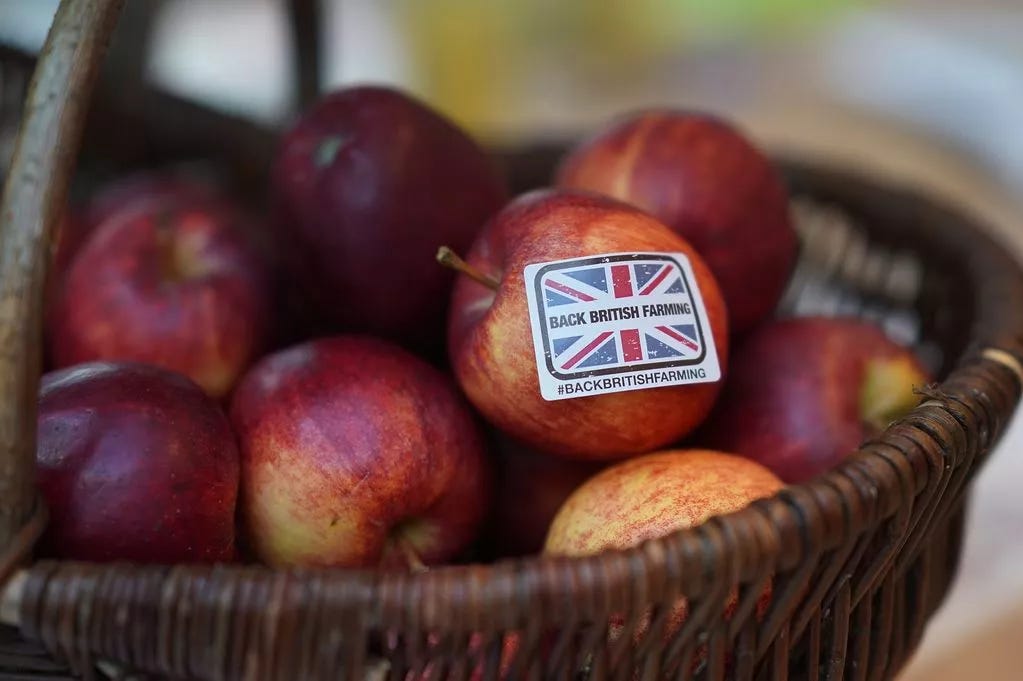
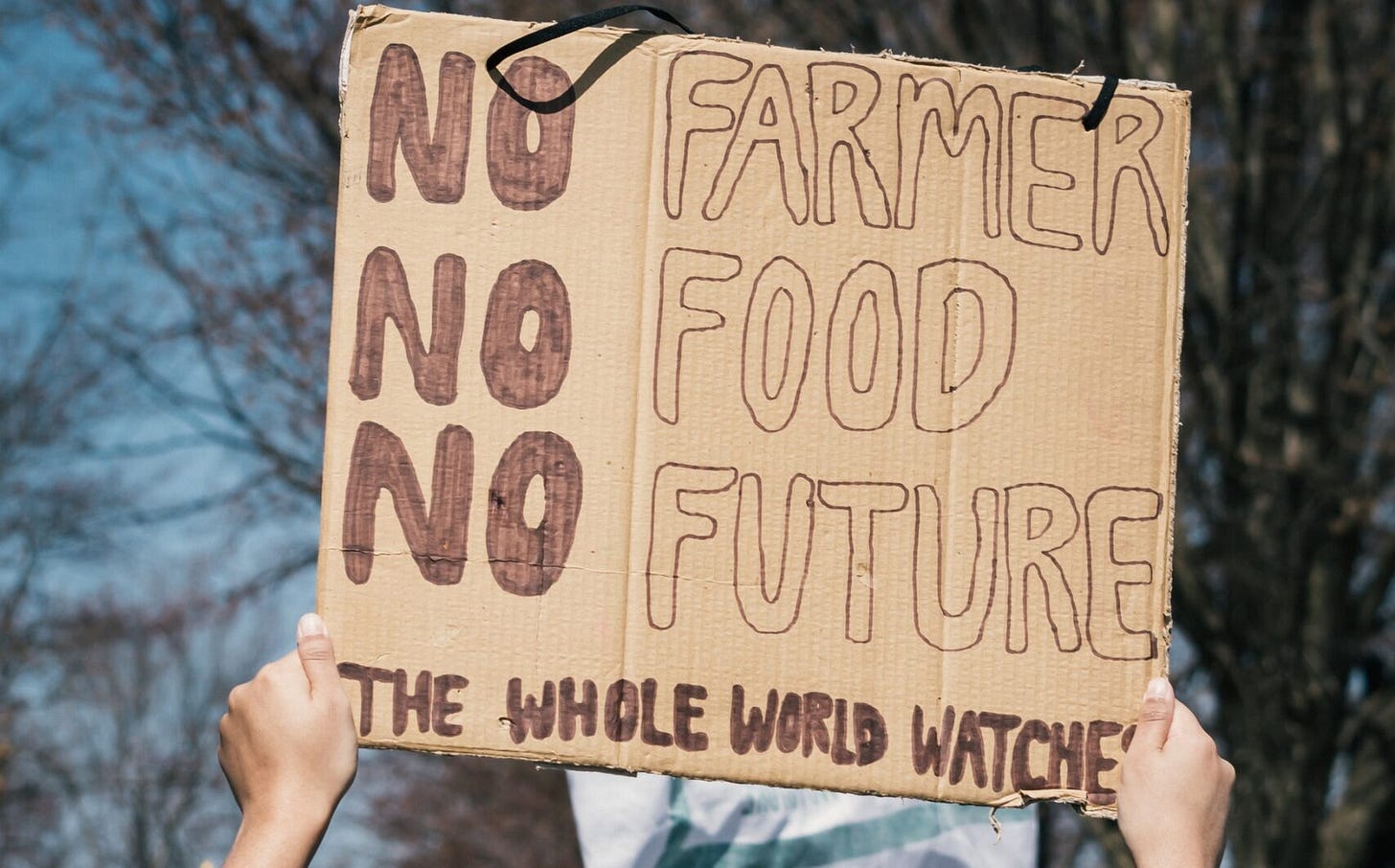
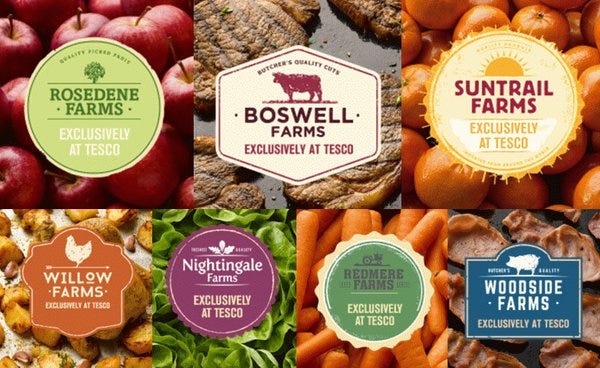
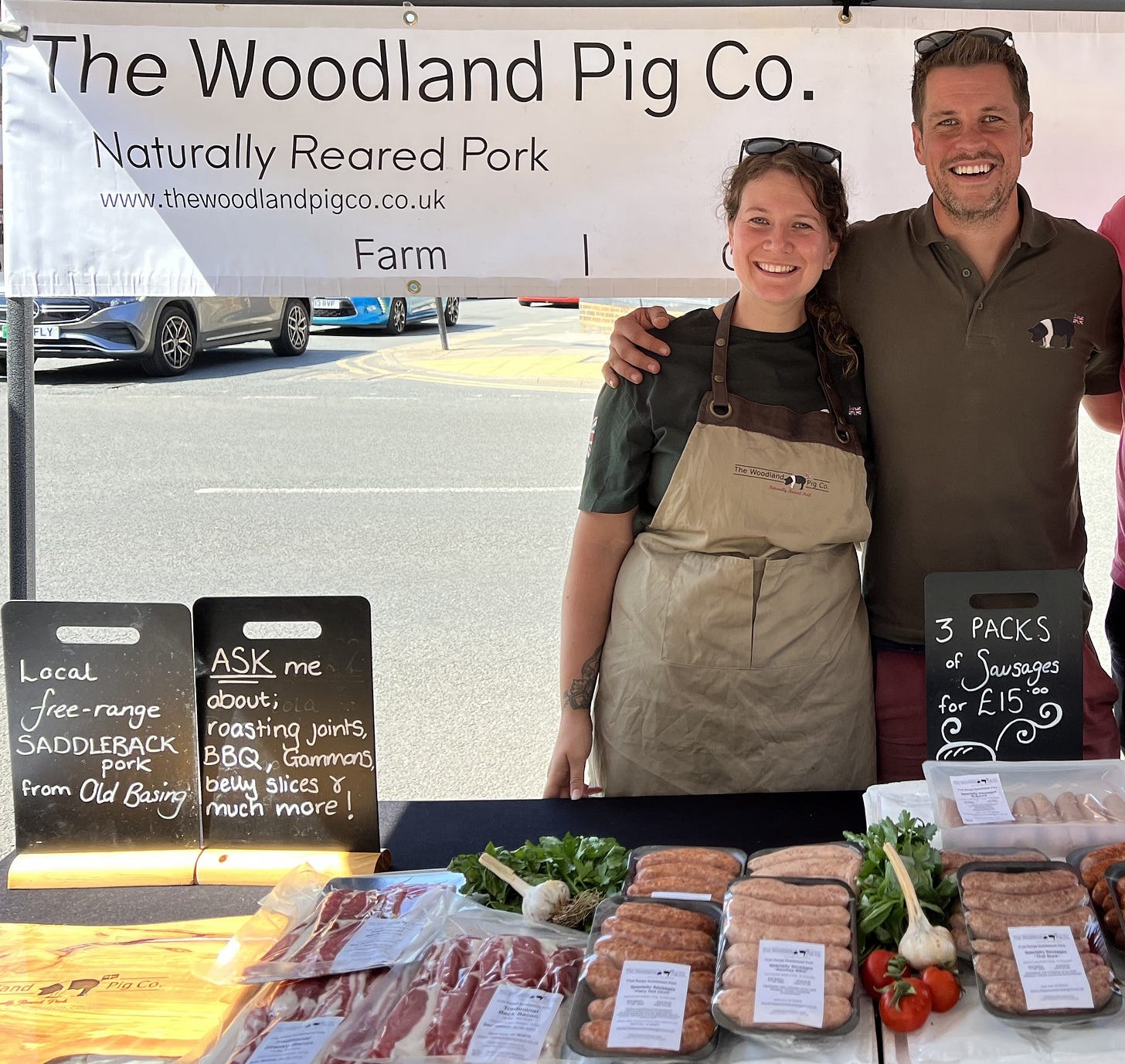
Isn't this fraud?
I buy mostly from my local Co-op as they sell veg from UK and particularly the local area (Notts, Lincs) and organic and fair trade. Plus I am a member so it’s a fair system of members rather than big shareholders. Also buy from local farms and Wildlife Trust meat from their conservation grazing stock.